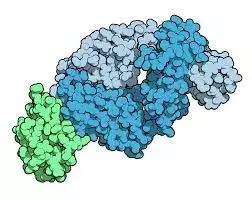- Home
- Medical news & Guidelines
- Anesthesiology
- Cardiology and CTVS
- Critical Care
- Dentistry
- Dermatology
- Diabetes and Endocrinology
- ENT
- Gastroenterology
- Medicine
- Nephrology
- Neurology
- Obstretics-Gynaecology
- Oncology
- Ophthalmology
- Orthopaedics
- Pediatrics-Neonatology
- Psychiatry
- Pulmonology
- Radiology
- Surgery
- Urology
- Laboratory Medicine
- Diet
- Nursing
- Paramedical
- Physiotherapy
- Health news
- Fact Check
- Bone Health Fact Check
- Brain Health Fact Check
- Cancer Related Fact Check
- Child Care Fact Check
- Dental and oral health fact check
- Diabetes and metabolic health fact check
- Diet and Nutrition Fact Check
- Eye and ENT Care Fact Check
- Fitness fact check
- Gut health fact check
- Heart health fact check
- Kidney health fact check
- Medical education fact check
- Men's health fact check
- Respiratory fact check
- Skin and hair care fact check
- Vaccine and Immunization fact check
- Women's health fact check
- AYUSH
- State News
- Andaman and Nicobar Islands
- Andhra Pradesh
- Arunachal Pradesh
- Assam
- Bihar
- Chandigarh
- Chattisgarh
- Dadra and Nagar Haveli
- Daman and Diu
- Delhi
- Goa
- Gujarat
- Haryana
- Himachal Pradesh
- Jammu & Kashmir
- Jharkhand
- Karnataka
- Kerala
- Ladakh
- Lakshadweep
- Madhya Pradesh
- Maharashtra
- Manipur
- Meghalaya
- Mizoram
- Nagaland
- Odisha
- Puducherry
- Punjab
- Rajasthan
- Sikkim
- Tamil Nadu
- Telangana
- Tripura
- Uttar Pradesh
- Uttrakhand
- West Bengal
- Medical Education
- Industry
Tralokinumab associated with increased risk of conjunctivitis in severe AD: study

Treatment with tralokinumab was associated with an increased incidence of conjunctivitis, according to a recent study published in the British Journal of Dermatology.
Atopic dermatitis (eczema) is a condition that makes your skin red and itchy. It's common in children but can occur at any age. Atopic dermatitis is long-lasting (chronic) and tends to flare periodically. It may be accompanied by asthma or hay fever. No cure has been found for atopic dermatitis.
Tralokinumab, a fully human immunoglobulin G4 monoclonal antibody that specifically binds to the interleukin-13 cytokine with high affinity, effectively reduces moderate-to-severe atopic dermatitis when given every 2 weeks. The incidence of conjunctivitis is elevated compared to placebo, but severity and etiology have not been examined.
A group of researchers conducted a study to analyze conjunctivitis data recorded in five randomized, placebo-controlled trials of tralokinumab in adult patients with moderate-to-severe atopic dermatitis.
Overall, 2285 adults with atopic dermatitis were studied up to 16 weeks. Cochran-Mantel-Haenszel weights were applied to calculate adjusted adverse-event incidences.
The Results of the study are as follows:
- Incidence of conjunctivitis was higher (7.5%) with tralokinumab compared to placebo (3.2%).
- Most events were mild or moderate in severity and 78.6% and 73.9% of events resolved during the trial in the tralokinumab and placebo groups, respectively.
- Two (1.4%) events led to permanent discontinuation of tralokinumab.
- An increased incidence of conjunctivitis, regardless of treatment group, was associated with more severe baseline atopic dermatitis, and history of allergic conjunctivitis/atopic keratoconjunctivitis, as well as the number of atopic comorbidities.
This analysis reports events up to Week 16 only, with limited confirmation of conjunctivitis and its etiology by an ophthalmologist and insufficient reporting of ophthalmic treatments.
Thus, the researchers concluded that treatment with tralokinumab was associated with increased incidence of conjunctivitis compared to placebo, but these cases were mostly mild and transient.
Reference:
Conjunctivitis in adult patients with moderate-to-severe atopic dermatitis: results from five tralokinumab clinical trials by A. Wollenberg et al. published in the British Journal of Dermatology.
Dr. Shravani Dali has completed her BDS from Pravara institute of medical sciences, loni. Following which she extensively worked in the healthcare sector for 2+ years. She has been actively involved in writing blogs in field of health and wellness. Currently she is pursuing her Masters of public health-health administration from Tata institute of social sciences. She can be contacted at editorial@medicaldialogues.in.
Dr Kamal Kant Kohli-MBBS, DTCD- a chest specialist with more than 30 years of practice and a flair for writing clinical articles, Dr Kamal Kant Kohli joined Medical Dialogues as a Chief Editor of Medical News. Besides writing articles, as an editor, he proofreads and verifies all the medical content published on Medical Dialogues including those coming from journals, studies,medical conferences,guidelines etc. Email: drkohli@medicaldialogues.in. Contact no. 011-43720751


